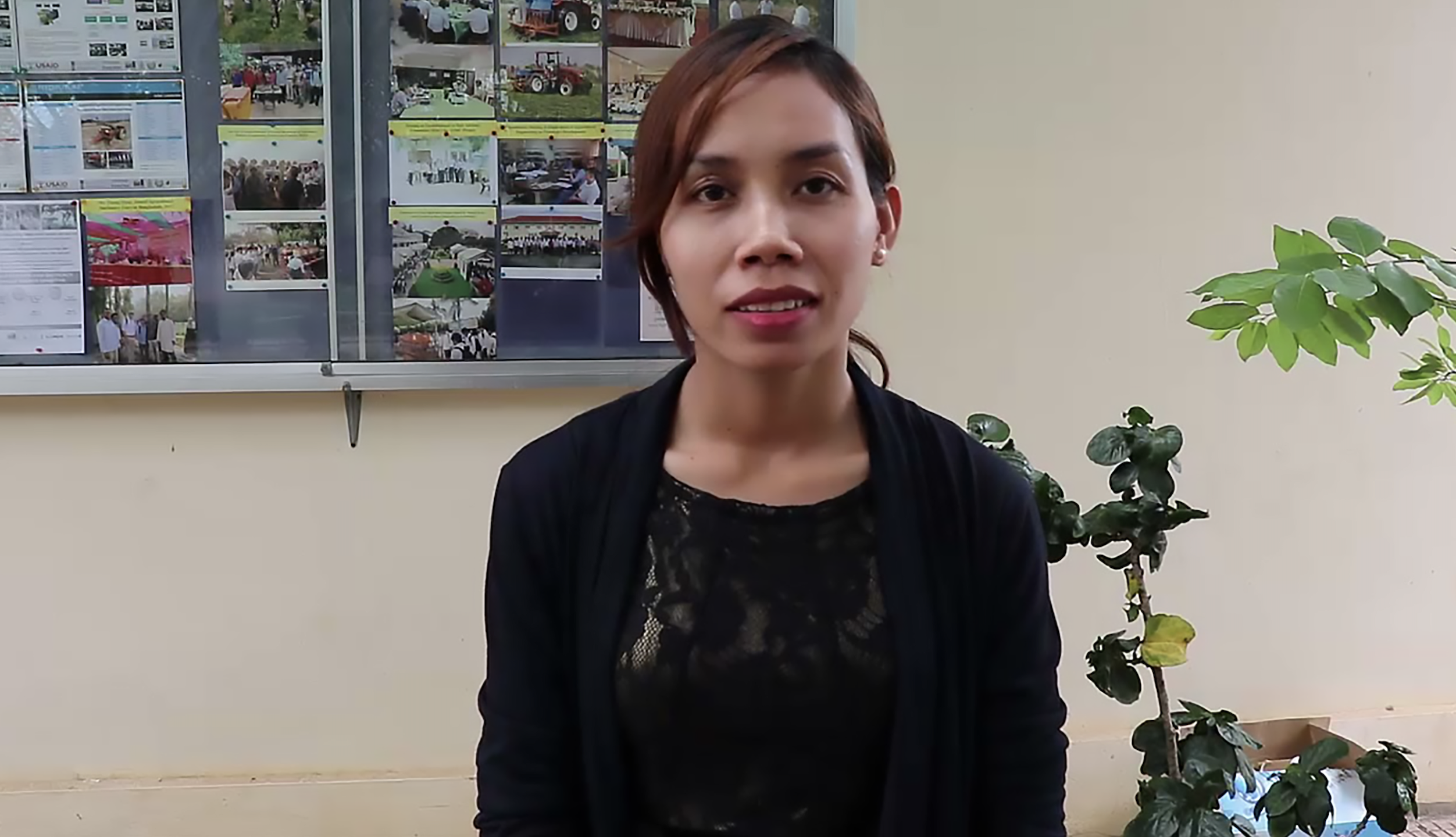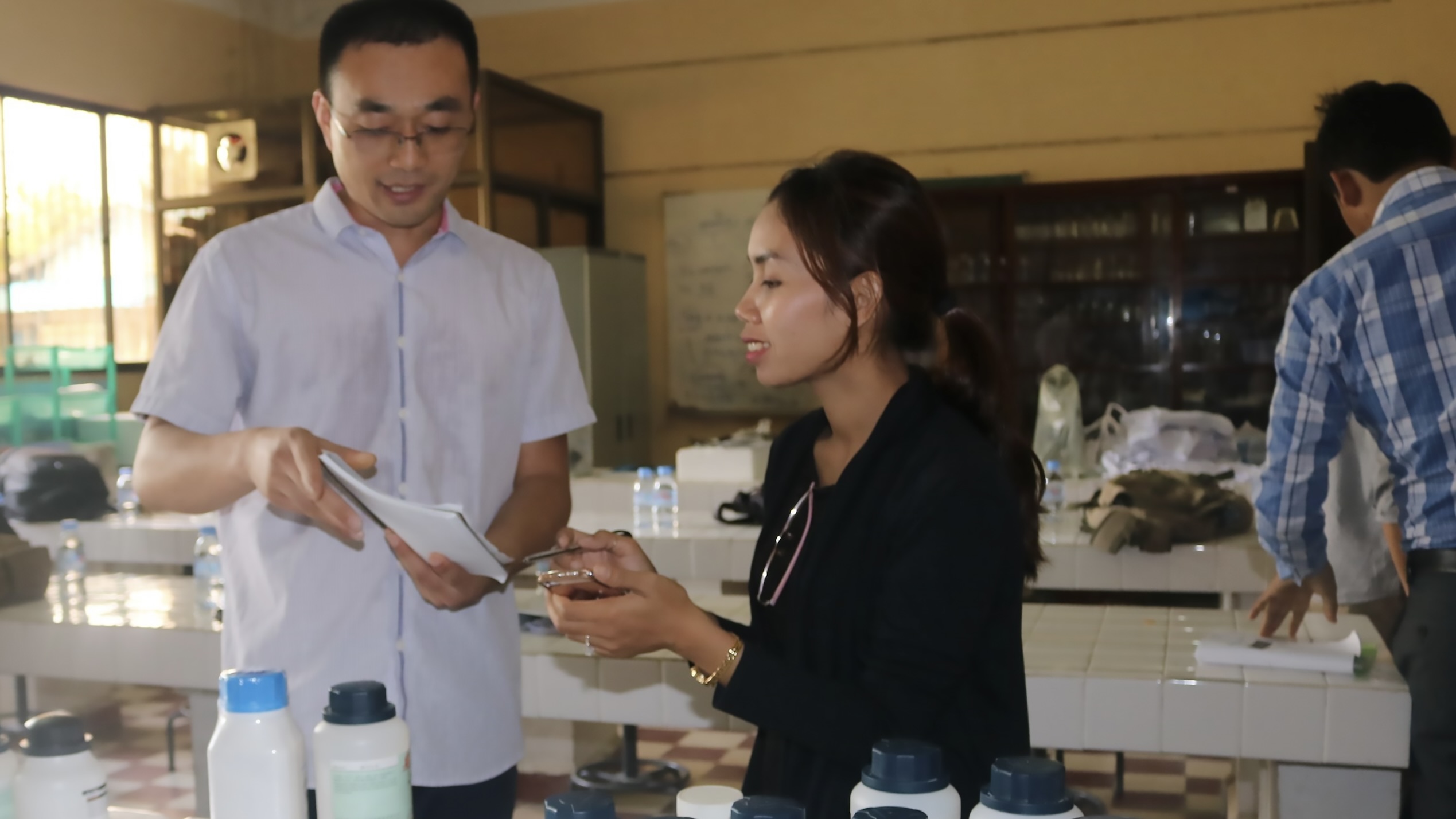

Teacher’s journey in promoting renewable energy-related research and development
05 March 2022 Sovannary Ky

By Sovannary Ky, Communication and Advocacy Assistant for the GEF-5 UNIDO project ,“Reduction of Greenhouse Gas Emissions through Promotion of Commercial Biogas Plants" in Cambodia*.
Originally published on the UN Cambodia website.
As a female teacher in the domain of science and technology, Vong Pisey is so content and proud to work in this field. She has always had the strong desire to support and encourage more women to get involved in various aspects of science and technology, from animal science to the application of waste to energy technologies.
“We often heard that science and technology are for men, not only in the industry but also in education and research. I think it is a biased perspective. I have overcome this social mindset and achieved my goal. I want to encourage other women to believe in themselves and chase their dreams, and to inspire other women by showcasing more female role models in the field.”
Pisey is one of the few women from the rural south of Cambodia to go beyond the barrier of social and cultural norms about women in science to pursue her education and career in science and technology with a full scholarship for her undergraduate and graduate degrees. Since graduating, she has been involved in and contributed to various science-related works, including education though teaching undergraduate students on science subjects and related research activities, climate change and sustainable development. She is currently an official at the Scientific Research Department at Cambodia's Ministry of Education, Youth and Sports.

Pisey developed her keen interest in renewable energy technologies during her school years in relation to waste management through the utilization of bio-digesters and she continues to be involved in various training and workshops.
“I was so impressed when I first learnt about the great potential benefit of biogas as a source of renewable energy and how it contributes to all dimensions of sustainable development, including protecting the environment, improving livelihoods and increasing profitability for farmers, and generating socio-economic benefits for society,” she said.
Since then, she has continued to be actively involved with UNIDO-supported training programmes on commercial biogas technologies and proactively puts that knowledge into practice. She has successfully led various environment and development-related projects, including a bio-digester demonstration project for farmers, engaging students and academia in climate change-related research, and a knowledge-sharing workshop on climate change for university students. She keeps promoting biogas technologies through disseminating information to her students and community and through research and development work.
Pisey has always been committed and has seized the opportunities to pursue her goal and give back to society. Along her journey, there have been challenges and obstacles that have interrupted her progress in the field she likes. She kept hearing the questions: “Why do you want to study and work in science and technology-related fields?” and “Science is not suitable for women,” etc. However, those stereotypes are been overcome by trusting in herself, focusing on what she wants, doing her best and showcasing herself through her work and results.
Pisey is one of the few women working in the education sector and research and development for science and technology. She has always encouraged and wants to see more women participate in the world of science and play an active role in the sustainable development of society.
“I think now there are more people and more women interested in science, as there is better information and easier ways to communicate, unlike around ten years ago.”
“I want a woman to believe in herself, stand strong for what she wants, play a leadership role, and be a role model for other young girls and women in her community. Society has to acknowledge and be willing to hone the essential role of women in education, especially for her children and her own family; and we at all levels, from peers to government and development organizations, must create an enabling environment for women to spark their interest and chase their dreams in science and technology, such as through providing scholarships, funding for research, and more importantly, social support to relieve the household chores so that women can have the same time for studying, networking and work as men.”
* Vong Pisey participated in a biogas training series organized by the UNIDO project, "Reducing GHG emission through the promotion of commercial biogas plants." The project aims to build national capacity in commercial biogas technology to assist Cambodian agribusiness to meet environmental requirements for waste management and greenhouse gas emission reductions while utilizing produced bioenergy for production.
Further reading: Practical Biogas Plant Development Handbook: Potential Biogas Resources, Legal Review, and Good Practice of Biogas Construction in Cambodia